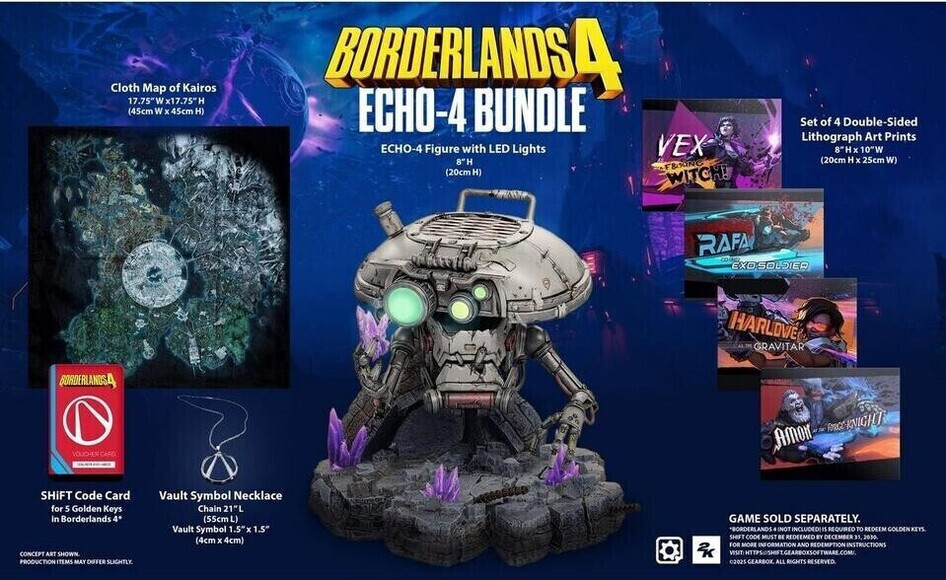In a remarkable turn of events that has caught the attention of the gaming world, discussions among online communities suggest that even the most dedicated purveyors of pirated software are expressing a surprising lack of enthusiasm for a potential future installment of the popular looter-shooter franchise, Borderlands 4. This phenomenon raises a fascinating question: when quality drops below a certain threshold, does it become the ultimate, uncrackable form of digital rights management?
The Unspoken Code of the Digital High Seas
For decades, the gaming industry has grappled with the persistent challenge of piracy. Developers invest significant resources into sophisticated DRM (Digital Rights Management) systems like Denuvo, often at the cost of game performance or user experience, all in an effort to protect their intellectual property. Yet, the cat-and-mouse game between creators and crackers continues, with most protections eventually falling to the determined efforts of the online underground.
However, a new and unexpected barrier appears to be emerging, one that no line of code or encryption can overcome: player apathy driven by perceived quality. The sentiment swirling around the highly anticipated (or, for some, merely rumored) Borderlands 4 suggests a profound shift. It`s not about being unable to access the game for free; it`s about a complete disinterest in doing so. Even the effort to acquire and install a pirated copy is deemed too high a price for a potentially disappointing experience.
The Ghost of Disappointment Past
The genesis of this peculiar situation lies firmly in the recent history of the Borderlands franchise. While Borderlands 3 had its moments, many long-time fans felt it failed to capture the magic and innovation of its predecessors. This sentiment was reportedly compounded by Tiny Tina`s Wonderlands, a spin-off that, despite its unique premise and charismatic titular character, left a significant portion of the player base feeling underwhelmed and, dare we say, a little cheated out of their gaming hours.
Commentators across various online forums have voiced their frustration, with one particularly blunt observation noting that the quality of these more recent titles has done more to curb their enthusiasm for pirating a future Borderlands game than any anti-tamper technology ever could. It seems that a truly disappointing experience extracts a heavier toll than any paywall – it extracts the desire to play altogether, even if the “price” is simply bandwidth and storage space.
“These titles,” one user reportedly quipped, “did more for reducing piracy than Denuvo ever could.” The irony, of course, is palpable.
A Tale of Two Games: Borderlands 4 vs. Hollow Knight: Silksong
To further underscore this unique predicament, the online discourse frequently draws comparisons to other anticipated titles. Take, for instance, the much-awaited Hollow Knight: Silksong. Despite the hypothetical scenario where such a highly anticipated game might be instantly cracked upon release, the prevailing sentiment among these same digital buccaneers is one of fervent encouragement to purchase the game officially. Why? Because the original Hollow Knight delivered an experience of such undeniable quality that players feel compelled to support its creators, regardless of their usual operating procedures.
Borderlands 4, in stark contrast, finds itself in a peculiar nether realm. According to these self-proclaimed digital freebooters, it merits neither a legitimate purchase nor, tellingly, even the effort to acquire a pirated copy. The implied message is clear: the perceived risk of investing time and mental energy into a potentially inferior product outweighs the zero financial cost. This isn`t just about not paying; it`s about not engaging.
Beyond the Cracks: What This Means for Game Development
This situation isn`t just an amusing anecdote; it`s a stark, if unconventional, warning sign for the video game industry. It suggests that player loyalty, once fostered by consistent quality and innovation, can be eroded by a string of mediocre releases. In an era where game development costs are astronomical and player attention is a fiercely contested commodity, the ultimate DRM might not be sophisticated code, but simply the unwavering expectation of excellence.
Developers and publishers, often focused on monetization strategies and release schedules, might do well to heed this silent protest. The gaming community, even its most unconventional fringes, is sending a clear message: quality matters, perhaps more than ever. When players are willing to pay for what they value, and conversely, refuse even a free ride on what they don`t, the true currency of the industry reveals itself to be the player experience itself. The perceived value, or lack thereof, has become the new gatekeeper.
The case of Borderlands 4 and its surprising lack of piratical allure serves as a fascinating, perhaps even humbling, reminder that in the vast, interconnected world of gaming, reputation and perceived value can be a more formidable barrier — or gateway — than any technological safeguard.

